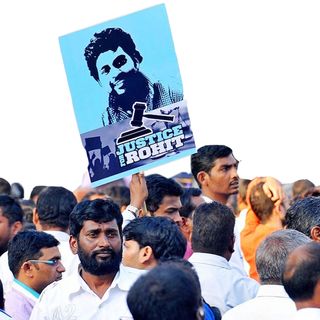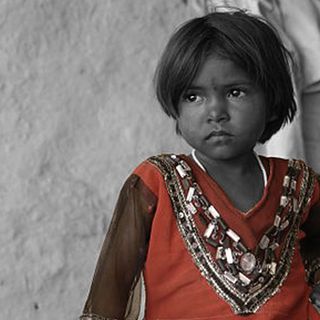
Study: Same‑Sex Male Couples Receive Less Parental Leave Than Other Couples
“A lot of the differences in leave stem from gender stereotypes where women are the primary caregivers.”

Same-sex male couples receive less paid parental leave than same-sex female couples and heterosexuals, according to a new study by the University of California, Los Angeles (UCLA).
The study analyzed data about labor, social security and parental leave legislation (maternal, paternal and shared parental leave) in 34 member countries of the Organisation for Economic Co-operation and Development (OECD). Of the 34, only one country — the U.S. — offered no national paid parental leave to new parents. From the remaining 33, same-sex male couples received parental leave on par with heterosexual couples in only four countries, “with many left struggling to pay household bills if they opt to spend more time at home with their children,” reports Reuters. Same-sex female couples received the same number of weeks off work as heterosexual couples in 19 countries.
“A lot of the differences in leave stem from gender stereotypes where women are the primary caregivers,” Elizabeth Wong, the lead author, told Reuters. “That not only affects heterosexual couples, it greatly disadvantages same-sex male couples.”
First published in the Journal of Social Policy, the study found that same-sex male couples had five fewer months of paid leave than different-sex couples, while same-sex females received three fewer months. On average, while heterosexual couples received between 13 and 184 weeks of paid leave, same-sex female couples were entitled to between 12 and 164 weeks; the duration available to same-sex male couples ranged from 0 to 156 weeks.
“While we didn’t find any legislation that explicitly prohibits same-sex couples from receiving paid parental leave, the way policies are structured or worded can nevertheless stop them from claiming benefits. Policymakers can explicitly guarantee inclusion and equality for same-sex couples by removing gender-restrictive language and providing equal paid leave opportunities for fathers and partners as provided to mothers,” Wong said in a statement.
Related on The Swaddle:
What It Really Takes to Retain Indian Women in the Workforce
In the matter of adoption leave, three of the 34 countries had no such provisions, while nine countries prohibited adoption by same-sex couples. Of the remaining 22 countries, 19 provided equal paid adoption leave for parents, regardless of the parents’ sex.
Of the 33 OECD countries offering paid parental leave (for birth and adoption), only four — Australia, New Zealand, Iceland, Sweden — guaranteed equal leave for all parents regardless of their gender.
“Families benefit when all parents, regardless of sex, gender identity or sexual orientation, can access paid leave to care for and bond with their children,” Dr. Jody Heymann, former Dean of the UCLA Fielding School of Public Health, further emphasized in a statement. These ideas — that women are mothers and nurturers, more than men are fathers and nurturers, that every family has one mother and one father — not only (continue to) place the burden of childbirth and rearing on women unfairly, they undervalue the importance of fathers’ involvement.
India, unfortunately, an OECD partner country that currently only provides 26 weeks of paid maternity leave and 0 weeks of paid paternity leave in the private sector. (While two weeks of paternity leave is available for fathers in government jobs, it is not mandatory.) While homosexual sex has been very recently decriminalized, same-sex couples still cannot marry, adopt or parent a surrogate child. There’s a long way to go, with one possible solution being the responsibility of paternal leave being shared by the government, employer and the employee. Zomato recently created history in June this year, becoming the first Indian company to extend that 26-week leave to fathers, non-birthing parents, same-sex partners, and in cases of surrogacy and adoption.
“One core issue that leads to fewer women leaders in organizations, the community, and the nation is the lack of universal paid parental leave. Currently, it is hard for women to lead a healthy family life and focus on their careers, leading to a lot of women leaving their jobs or putting their careers on the back burner,” Deepinder Goyal, founder of Zomato wrote in a blog post. Understanding that this inequality faced by women and queer people in the workplace, especially in senior leadership positions, stems from various reasons — homophobia, societal norms, precedents, and sometimes, even government policies, Goyal writes. “There’s an African adage — it takes a village to raise a child. And while a village is ideal, a world where both parents are allowed, rather encouraged to assume equal responsibility is a fair start. We will never have truly gender-neutral organizations unless we have gender-neutral communities and gender-neutral nations.”
Pallavi Prasad is The Swaddle's Features Editor. When she isn't fighting for gender justice and being righteous, you can find her dabbling in street and sports photography, reading philosophy, drowning in green tea, and procrastinating on doing the dishes.
Related


Children from Scheduled Castes, Tribes More Likely to Die Before Age 5
